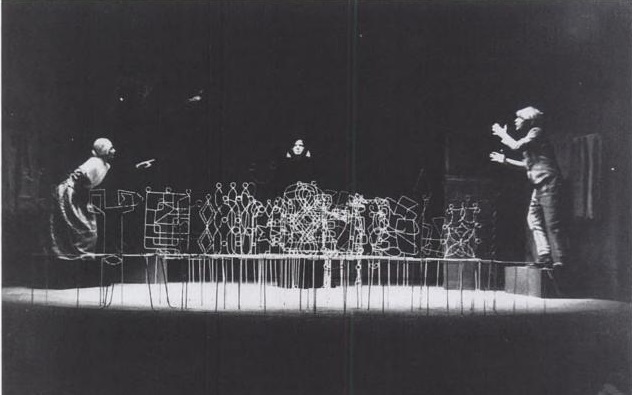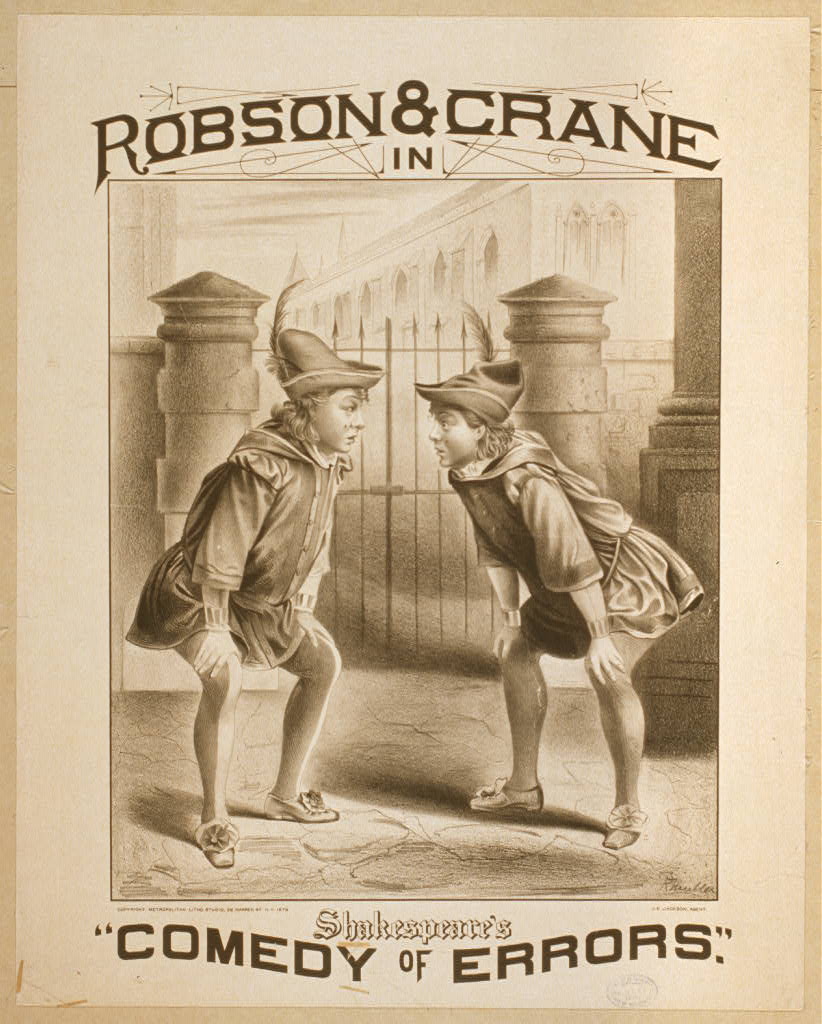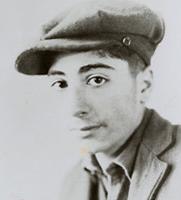|
Randi Nordby
Randi Nilie Nordby Johnson (May 15, 1926 – March 28, 1991) was a Norwegian actress. She was engaged with the Oslo New Theater for many years. As an actress, she used her maiden name as her stage name. Career Randi Nordby started her career very early, and already as a child she was acting in Inga Bjørnson's children's theater. She made her stage debut at age 12 in 1938 in '' The Women'' (Norwegian title: ''Kvinner'') by Clare Boothe Luce at the New Theater in Oslo. She made her adult debut in 1945 in Leonid Leonov's play ''Invasion'' at the Studio Theater, and she remained there until it had to close in 1950. She was then at the New Theater until 1963. She later performed as a freelance actress. At the New Theater she appeared in plays such as William Shakespeare's ''Hamlet'', Ralph Benatzky and Robert Stolz's ''The White Horse Inn'' (Norwegian title: ''Sommer i Tyrol''), and Eugène Ionesco's ''The Chairs''. Later she performed on NRK's Radio Theater and Television Theate ... [...More Info...] [...Related Items...] OR: [Wikipedia] [Google] [Baidu] |
Oslo
Oslo ( , , or ; sma, Oslove) is the capital and most populous city of Norway. It constitutes both a county and a municipality. The municipality of Oslo had a population of in 2022, while the city's greater urban area had a population of in 2019, and the metropolitan area had an estimated population of in 2021. During the Viking Age the area was part of Viken. Oslo was founded as a city at the end of the Viking Age in 1040 under the name Ánslo, and established as a ''kaupstad'' or trading place in 1048 by Harald Hardrada. The city was elevated to a bishopric in 1070 and a capital under Haakon V of Norway around 1300. Personal unions with Denmark from 1397 to 1523 and again from 1536 to 1814 reduced its influence. After being destroyed by a fire in 1624, during the reign of King Christian IV, a new city was built closer to Akershus Fortress and named Christiania in honour of the king. It became a municipality ('' formannskapsdistrikt'') on 1 January 1838. The city fu ... [...More Info...] [...Related Items...] OR: [Wikipedia] [Google] [Baidu] |
The Chairs
''The Chairs'' (french: Les Chaises) is a one-act play by Eugène Ionesco, described as an absurdist "tragic farce". It was first performed in Paris in 1952. Setting A high tower surrounded by water. Characters *Old Man, aged 95 *Old Woman, aged 94 *Orator, aged 45-50 Plot An old married couple are alone waiting for guests to arrive. The Old Man tells a favourite story from their past, and the Old Woman, who seems to be both wife and mother, says he could have been much more in life than a caretaker. He says he has a great message for mankind, and has engaged an orator to deliver it to their guests. When the guests arrive, they are invisible to the audience, yet the couple bring chairs and engage them in conversation. They include the Old Man’s former lover and a photographer with whom the Old Woman flirts. The old couple tell them contradictory stories about their past lives. They frantically arrange chairs for more and more invisible guests. The room appears to be packed and ... [...More Info...] [...Related Items...] OR: [Wikipedia] [Google] [Baidu] |
The Comedy Of Errors
''The Comedy of Errors'' is one of William Shakespeare's early plays. It is his shortest and one of his most farcical comedies, with a major part of the humour coming from slapstick and mistaken identity, in addition to puns and word play. It has been adapted for opera, stage, screen and musical theatre numerous times worldwide. In the centuries following its premiere, the play's title has entered the popular English lexicon as an idiom for "an event or series of events made ridiculous by the number of errors that were made throughout". Set in the Greek city of Ephesus, ''The Comedy of Errors'' tells the story of two sets of identical twins who were accidentally separated at birth. Antipholus of Syracuse and his servant, Dromio of Syracuse, arrive in Ephesus, which turns out to be the home of their twin brothers, Antipholus of Ephesus and his servant, Dromio of Ephesus. When the Syracusans encounter the friends and families of their twins, a series of wild mishaps based on m ... [...More Info...] [...Related Items...] OR: [Wikipedia] [Google] [Baidu] |
Thornton Wilder
Thornton Niven Wilder (April 17, 1897 – December 7, 1975) was an American playwright and novelist. He won three Pulitzer Prizes — for the novel ''The Bridge of San Luis Rey'' and for the plays ''Our Town'' and ''The Skin of Our Teeth'' — and a U.S. National Book Award for the novel '' The Eighth Day''. Early years and family Wilder was born in Madison, Wisconsin, the son of Amos Parker Wilder, a newspaper editor and later a U.S. diplomat, and Isabella Thornton Niven. Wilder had four siblings as well as a twin who was stillborn. All of the surviving Wilder children spent part of their childhood in China when their father was stationed in Hong Kong and Shanghai as U.S. Consul General. Thornton's older brother, Amos Niven Wilder, became Hollis Professor of Divinity at the Harvard Divinity School. He was a noted poet and was instrumental in developing the field of theopoetics. Their sister Isabel Wilder was an accomplished writer. They had two more sisters, Charlotte Wilder, ... [...More Info...] [...Related Items...] OR: [Wikipedia] [Google] [Baidu] |
The Skin Of Our Teeth
''The Skin of Our Teeth'' is a play by Thornton Wilder that won the Pulitzer Prize for Drama. It opened on October 15, 1942, at the Shubert Theatre in New Haven, Connecticut, before moving to the Plymouth Theatre on Broadway on November 18, 1942. It was produced by Michael Myerberg and directed by Elia Kazan with costumes by Mary Percy Schenck. The play is a three-part allegory about the life of mankind, centering on the Antrobus family of the fictional town of Excelsior, New Jersey. The epic comedy-drama is noted as among the most heterodox of classic American comedies — it broke nearly every established theatrical convention. The phrase used as the title comes from the King James Bible, Job 19:20: "My bone cleaveth to my skin and to my flesh, and I am escaped with the skin of my teeth." Overview The main characters of the play are George and Maggie Antrobus (from el, άνθρωπος (anthropos), "human" or "person"), their two children, Henry and Gladys, and Sabina, who ... [...More Info...] [...Related Items...] OR: [Wikipedia] [Google] [Baidu] |
William Saroyan
William Saroyan (; August 31, 1908 – May 18, 1981) was an Armenian-American novelist, playwright, and short story writer. He was awarded the Pulitzer Prize for Drama in 1940, and in 1943 won the Academy Award for Best Story for the film ''The Human Comedy''. When the studio rejected his original 240-page treatment, he turned it into a novel, '' The Human Comedy.'' Saroyan is regarded as one of the greatest writers of the 20th century. Saroyan wrote extensively about the Armenian immigrant life in California. Many of his stories and plays are set in his native Fresno. Some of his best-known works are ''The Time of Your Life'', ''My Name Is Aram'' and '' My Heart's in the Highlands''. His two collections of short stories from the 1930s, ''Inhale Exhale'' (1936) and ''The Daring Young Man On the Flying Trapeze'' (1941) are regarded as among his major achievements and essential documents of the cultural history of the period on the American West Coast. He has been described in ... [...More Info...] [...Related Items...] OR: [Wikipedia] [Google] [Baidu] |
Aldo De Benedetti
Aldo De Benedetti (13 August 1892 – 19 January 1970) was an Italian screenwriter. He wrote for more than 110 films between 1920 and 1958. He was born and died in Rome, Italy. Selected filmography * '' Marco Visconti'' (1925) * ''What Scoundrels Men Are!'' (1932) * ''Mr. Desire'' (1934) * ''Just Married'' (1934) * '' The Countess of Parma'' (1936) *''Music in the Square'' (1936) * ''Thirty Seconds of Love'' (1936) * ''Sette giorni all'altro mondo'' (1936) * ''The Last Days of Pompeo'' (1937) * ''The Carnival Is Here Again'' (1937) * ''Mother Song'' (1937) * '' These Children'' (1937) * '' Triumph of Love'' (1938) * ''Nonna Felicità'' (1938) * ''They've Kidnapped a Man'' (1938) *''The House of Shame'' (1938) * ''The Lady in White'' (1938) * ''The Faceless Voice'' (1939) * ''We Were Seven Sisters'' (1939) * ''We Were Seven Widows'' (1939) * ''Unjustified Absence'' (1939) * '' Mille chilometri al minuto'' (1939) * ''Red Roses'' (1940) * ''Red Tavern'' (1940) * '' Two on a Vac ... [...More Info...] [...Related Items...] OR: [Wikipedia] [Google] [Baidu] |
Lars Levi Laestadius
Lars Levi Laestadius (; 10 January 1800 – 21 February 1861) was a Swedish Sami pastor and administrator of the Swedish state Lutheran church in Lapland who founded the Laestadian pietist revival movement to help his largely Sami congregations, who were being ravaged by alcoholism. Laestadius was also a noted botanist and an author. Laestadius himself became a teetotaller (except for his ongoing use of wine in holy Communion) in the 1840s, when he began successfully awakening his Sami parishioners to the misery and destruction alcohol was causing them. Early life Birth and education Laestadius was born in Swedish Lapland at Jäckvik near Arjeplog in a western mountainous part of Norrbotten County, the northernmost county in Sweden, to Carl Laestadius (1746-1832)—a Swedish hunter, fisherman, tar-maker, and one-time silver mine bailiff, who lost his job due to alcoholism—and Anna Magdalena (née Johansdotter) (1759-1824), who was the elder Laestadius's second wife. Both w ... [...More Info...] [...Related Items...] OR: [Wikipedia] [Google] [Baidu] |
Nils-Reinhardt Christensen
Nils Reinhardt Christensen (13 April 1919 – 8 November 1990) was a Norwegian film director and screenwriter. He directed nine films between 1957 and 1969. Filmography * 1957: ''Selv om de er små'' * 1959: ''5 loddrett'' * 1961: ''Et øye på hver finger'' * 1961: '' Line'' * 1962: ''Stompa & Co'' * 1963: ''Stompa, selvfølgelig!'' * 1965: ''Stompa forelsker seg'' * 1967: ''Stompa til Sjøs!'' * 1969: ''Psychedelica Blues ''Psychedelica Blues'' is a Norway, Norwegian youth drama film from 1969 directed by Nils Reinhardt Christensen. Along with Øyvind Vennerød's ''Himmel og helvete'', it was the first Norwegian film that dealt with adolescents' use of narcotics, a ...'' References External links * 1919 births 1990 deaths Norwegian male film actors Norwegian screenwriters 20th-century Norwegian writers 20th-century Norwegian male actors 20th-century screenwriters {{Norway-film-director-stub ... [...More Info...] [...Related Items...] OR: [Wikipedia] [Google] [Baidu] |
Dodie Smith
Dorothy Gladys "Dodie" Smith (3 May 1896 – 24 November 1990) was an English novelist and playwright. She is best known for writing ''I Capture the Castle'' (1948) and the children's novel ''The Hundred and One Dalmatians'' (1956). Other works include ''Dear Octopus'' (1938) and '' The Starlight Barking'' (1967). ''The Hundred and One Dalmatians'' was adapted into a 1961 animated film and a 1996 live-action film, both produced by Disney. Her novel ''I Capture the Castle'' was adapted into a 2003 film version. ''I Capture the Castle'' was voted number 82 as "one of the nation's 100 best-loved novels" by the British public as part of the BBC's The Big Read (2003). Biography Early life Smith was born on 3 May 1896 in a house named Stoneycroft (number 118) on Bury New Road, Whitefield, near Bury in Lancashire, England. She was an only child. Her parents were Ernest and Ella Smith (née Furber). Ernest was a bank manager; he died in 1898 when Dodie was two years old. Dodie an ... [...More Info...] [...Related Items...] OR: [Wikipedia] [Google] [Baidu] |
Dear Octopus
''Dear Octopus'' is a comedy by the playwright and novelist Dodie Smith. It opened at the Queen's Theatre, London on 14 September 1938. On the outbreak of the Second World War in September 1939 the run was halted after 373 performances; after a spell in the provinces in early 1940 the play was brought back to London and played two further runs there until 31 August 1940. The play depicts the relationships between three generations of a large family. The "dear octopus" of the title refers to the family itself, whose tentacles its members can never escape. Background Smith had been a successful playwright throughout the 1930s. Her 1935 play ''Call It a Day'' had the longest run of any play by a woman dramatist up to that time, 509 performances."Obituary: Dodie Smith", ''The Times'', 27 November 1990, p. 20 The impresario Binkie Beaumont of H. M. Tennent secured the performing rights of ''Dear Octopus'' and offered his friend John Gielgud the romantic lead. Gielgud was happy to ac ... [...More Info...] [...Related Items...] OR: [Wikipedia] [Google] [Baidu] |
Dickie Dick Dickens
''Dickie Dick Dickens'' is a satirical radio play by and . The play, which tells the story of Dickie Dick Dickens' rise from simple pickpocket to gangster leader in Chicago, was first produced in Germany in 1959 by Bayerischer Rundfunk, which produced the last of its 51 episodes in 1976. Radio Bremen, Schweizer Radio DRS, Norwegian National Broadcasting NRK and Swedish National Broadcasting Sveriges Radio also made their own productions. It became particularly popular in Norway where it was voted the most popular radio play of all time in 2001. Rolf and Alexandra Becker also published five books parallel with the production of the radio play. A theatre play based on the radio play debuted in Norway in 2011. The plot The story is set in the 1920s in Chicago#20th_and_21st_centuries, Chicago and tells the story of Dickie Dick Dickens evolving from a simple pickpocket to the "most dangerous man in Chicago's underworld", "a shining star in the wonderful million city's gangster sky". ... [...More Info...] [...Related Items...] OR: [Wikipedia] [Google] [Baidu] |




